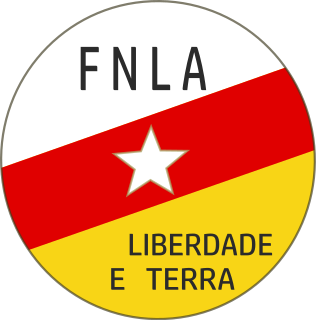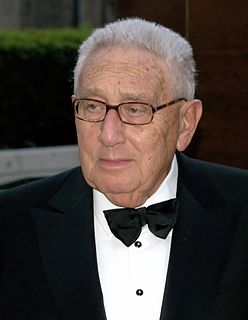
Since the adoption of a new constitution in 2010, the politics of Angola takes place in a framework of a presidential republic, whereby the President of Angola is both head of state and head of government, and of a multi-party system. Executive power is exercised by the government. Legislative power is vested in the President, the government and parliament.

The National Union for the Total Independence of Angola (UNITA) is the second-largest political party in Angola. Founded in 1966, UNITA fought alongside the Popular Movement for the Liberation of Angola (MPLA) in the Angolan War for Independence (1961–1975) and then against the MPLA in the ensuing civil war (1975–2002). The war was one of the most prominent Cold War proxy wars, with UNITA receiving military aid from the United States and South Africa while the MPLA received support from the Soviet Union and its allies.

The People's Movement for the Liberation of Angola, for some years called the People's Movement for the Liberation of Angola – Labour Party, is a political party that has ruled Angola since the country's independence from Portugal in 1975. The MPLA fought against the Portuguese army in the Angolan War of Independence of 1961–74, and defeated the National Union for the Total Independence of Angola (UNITA) and the National Liberation Front of Angola (FNLA), two other anti-colonial movements, in the Angolan Civil War of 1975–2002.

The Angolan War of Independence (1961–1974) began as an uprising against forced cotton cultivation, and it became a multi-faction struggle for the control of Portugal's overseas province of Angola among three nationalist movements and a separatist movement. The war ended when a leftist military coup in Lisbon in April 1974 overthrew Portugal's Estado Novo regime, and the new regime immediately stopped all military action in the African colonies, declaring its intention to grant them independence without delay.

Holden Álvaro Roberto founded and led the National Liberation Front of Angola (FNLA) from 1962 to 1999. His memoirs are unfinished.

The Angolan Civil War was a civil conflict in Angola, beginning in 1975 and continuing, with interludes, until 2002. The war began immediately after Angola became independent from Portugal in November 1975. The war was a power struggle between two former liberation movements, the People's Movement for the Liberation of Angola (MPLA) and the National Union for the Total Independence of Angola (UNITA). The war was used as a surrogate battleground for the Cold War by rival states such as the Soviet Union, Cuba, South Africa and the United States.

Operation Savannah was the South African Defence Force's 1975–1976 covert intervention in the Angolan War of Independence, and the subsequent Angolan Civil War.

Angola – United States relations are diplomatic relations between the Republic of Angola and the United States of America. These relations were tense during the Angolan Civil War when the U.S. government backed National Union for the Total Independence of Angola (UNITA) rebels, but have warmed since the Angolan government renounced Communism in 1992.

The Alvor Agreement, signed on 15 January 1975, granted Angola independence from Portugal on 11 November, ending the war for independence while marking the transition to the Angolan Civil War.
Operation IA Feature, a covert Central Intelligence Agency operation, authorized U.S. government support for Jonas Savimbi's National Union for the Total Independence of Angola (UNITA) and Holden Roberto's National Liberation Front of Angola (FNLA) militants in the Angolan Civil War. It was closely linked with parallel efforts by South Africa and Zaire. President Gerald Ford approved the program on July 18, 1975 despite strong opposition from officials in the State Department and the CIA. The program's discovery shocked Congress into barring further U.S. involvement in Angola's Civil War through the Clark Amendment.
The Military history of Angola is marked by a series of conflicts rooted in colonialism and the political mood of the Cold War. During the Cold War, Angola would be involved in struggles against Western powers and South Africa with the help of the Soviet Union and Cuba.

Since its independence from Portugal in 1975, Angola has had three constitutions. The first came into force in 1975 as an "interim" measure; the second was approved in a 1992 referendum, and the third one was instituted in 2010.
The 1970s in Angola, a time of political and military turbulence, saw the end of Angola's War of Independence (1961–1975) and the outbreak of civil war (1975–2002). Agostinho Neto, the leader of the People's Movement for the Liberation of Angola (MPLA), declared the independence of the People's Republic of Angola on November 11, 1975, in accordance with the Alvor Accords. UNITA and the FNLA also declared Angolan independence as the Social Democratic Republic of Angola based in Huambo and the Democratic Republic of Angola based in Ambriz. FLEC, armed and backed by the French government, declared the independence of the Republic of Cabinda from Paris. The National Liberation Front of Angola (FNLA) and the National Union for the Total Independence of Angola (UNITA) forged an alliance on November 23, proclaiming their own coalition government based in Huambo with Holden Roberto and Jonas Savimbi as co-presidents and José Ndelé and Johnny Pinnock Eduardo as co-Prime Ministers.

Angola–China relations date back to pre-independent Angola. Today they are based on an emerging trade relationship. As of 2011, Angola is China's second biggest trading partner in Africa.

In November 1975, on the eve of Angola's independence, Cuba launched a large-scale military intervention in support of the leftist People's Movement for the Liberation of Angola (MPLA) against United States-backed interventions by South Africa and Zaire in support of two right-wing independence movements competing for power in the country, the National Liberation Front of Angola (FNLA) and the National Union for the Total Independence of Angola (UNITA). By the end of 1975 the Cuban military in Angola numbered more than 25,000 troops. Following the withdrawal of Zaire and South Africa, Cuban forces remained in Angola to support the MPLA government against UNITA in the continuing Angolan Civil War.

Angola-Cuba diplomatic relations refers to the historical and current bilateral relationship between Angola and Cuba. During Angola's civil war, Cuban forces fought alongside the Marxist–Leninist People's Movement for the Liberation of Angola (MPLA) government; against the Western-backed National Union for the Total Independence of Angola (UNITA) and National Liberation Front of Angola (FNLA) guerrillas who were aided by the South-African army. The present day outcome of the war resulted in the MPLA changing from a Marxist–Leninist party to a multi-party democratic system based on Neoliberal principles. From an economic stand point, Cuba has lost its preferred status among Angolans and South Africa has become the biggest single investor and trading partner with Angola.

Soviet–Angolan relations were close until the Angolan government renounced Marxist-Leninism in 1990 and adopted a pro-Western foreign policy. The close, personal relationship between President Agostinho Neto and Cuban leader Fidel Castro complicated the Soviet Union's involvement in the Angolan Civil War and foiled several assassination attempts against Neto.
This article deals with the activities of the U.S. Central Intelligence Agency (CIA) in Angola. The list of activities may be incomplete due to the clandestine nature of the subject matter.


















